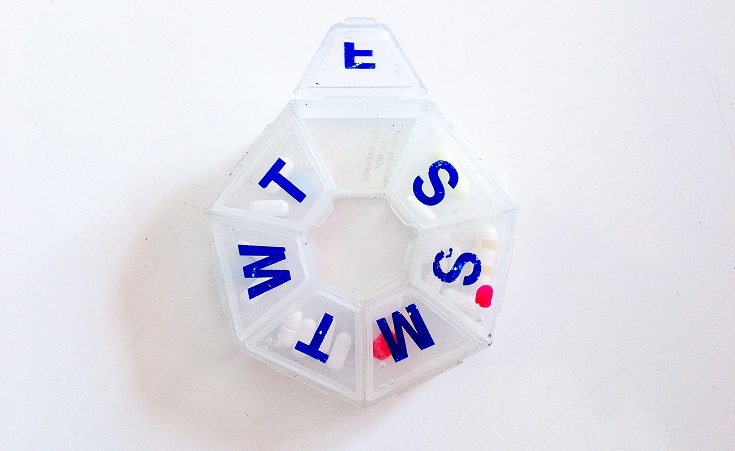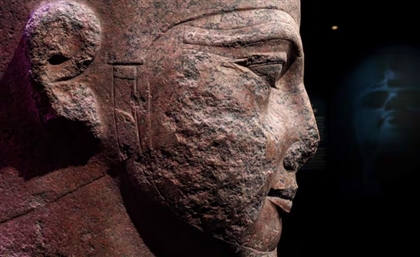Scoring Essential Medicines: The Trials and Tribulations of Being an ADHD Patient in Egypt
Egypt is often known for its relaxed policies on prescription drugs. That is, until a certain essential drug was prescribed, and the truth was revealed...

After stacking up hay for the horses several days in a row, on a rescue farm in Wales, I woke up the following morning with an asthma attack. I had developed mild asthma five years earlier after suffering from a harsh lung infection, and which I easily treat with one pill of Aerius (desloratadine) and a puff of Ventolin (albuterol), as per my doctor’s instructions. So I headed to Boots, the UK’s most famous pharmacy, and asked for them. They said I had to have a prescription, and refused to give me an over-the-counter alternative because my wheezing sounded too serious.
To cut a long story short, being unregistered for health insurance, and the condition being an emergency, I was unwillingly sent over to a hospital’s Emergency Room, where I waited for eight hours to see a physician who had me undergo blood tests, a chest x-ray and an examination. I was then given an inhaler and pills containing the active ingredients I asked for to begin with, in addition to some kind of anti-inflammatory (to treat the inflammation I still insist I only developed in the eight hours of waiting).
It was one of the things I missed about Egypt; getting medicines easily without prescription. Not that I ever abused this, but it’s nice to have easy access to meds you know work for you in certain emergencies.
That was until I was diagnosed with ADHD, and discovered the other ugly side of the story.
The pill is called Concerta (methylphenidate). My psychiatrist warned me it would be hard to find and offered to have someone bring it for me to his clinic, just for that first time. After two weeks, it made it there, and I went and picked it up. My life shifted 180 degrees to the better. I was able to read again, work again, focus on films, and follow and partake in conversations without an overwhelming struggle. I changed from being dysfunctional to a fully functional human being capable of fulfilling my potential (relatively speaking of course).Then it was time to refill my prescription.
It was a week from hell, filled with misleading phone calls, and driving across the extremities of Cairo from one psychiatric hospital to the other. Not only is the medicine only dispensed from certain pharmacies agreed upon by the association of drug control in Egypt, but it is also hard to get, even if you have a prescription, because it is considered a narcotic and the government controls the number of bottles brought into the country, regardless of need and demand. So, if the medicine is available at a certain hospital in the morning when you call to ask, by the time you drive there in the afternoon it could be gone.
After more phone calls, and starting to get stressed with my livelihood being threatened, I was told it was available at El Esaaf government pharmacy, where my prescription is apparently invalid. To get it dispensed from there I had to have a very special prescription issued and stamped from the Drug Enforcement Administration. Luckily someone knew someone who could give me that paper which needs to be filled with your address and ID number, and is then kept by the pharmacy for government records.
It turns out that any medicine that affects the brain, mood, behaviour, and psychology is divided into one of three governmental lists. You can find most medicines on lists 2 and 3 easily at any pharmacy, such as Prozac, Xanax, and Effexor. List 1, however is heavily moderated by the government and includes meds like Concerta, and Tramadol. The latter however can be easily found on the black market, and is truly addictive. Further proof of inadequate drug control.
What is very frustrating is that I know for a fact, that hash, cocaine, and Tramadol are only one or two phone calls, and half an hour away. Meanwhile, this medicine on which the welfare of many (especially children) depends, is so complicated to get. Does this sound like well regulated drug control?
In the UK, which I had the audacity to complain about earlier, you walk in with a prescription at your local pharmacy, and out with your meds. Simple. Your career, livelihood, and entire existence are not threatened by illogical and ill-informed bureaucracy that at the end of the day fails to ensure the safety they pretend to be so anal about. You can get Viagra, sleeping pills, and very dangerous medication over-the-counter at any pharmacy where you really need a prescription since many health factors need to be considered by a physician lest you suffer serious, and maybe even fatal complications.
This is not to mention the meds that are frequently out of stock without an alternative, and which you have to absolutely take at a specified time or you’re screwed, such as Contraplan (the morning after emergency pill), and other hormonal medications on which one’s sanity could depend.
This is not even the ugly part of it all. It gets worse. People like me are actually very lucky. It may be hard to get our meds, but at the end of the day, we manage to ‘score’ them. On the other hand, there is a whole world out there of unprivileged individuals seriously suffering from a lack of access to desperately needed medication. People who live in less privileged governorates and small towns, and who also have ridiculously low incomes, and very poor health have to travel across entire cities, not just one, to maintain their mental health. This is assuming they've been able to overcome the social stigma of actually seeing a psychiatrist, travelled to Cairo for an appointment, and got a more or less accurate diagnosis leading to a prescription, which should be the easiest and final step of the long consuming journey, where you finally find relief. Sadly, it is not, it is only a source of further recurring suffering based on governmental incompetence rooted in ignorance, bureaucracy, and a general inhumane disinterest in the welfare of citizens.
- Previous Article Breaking: Bomb Explodes Targeting Police Bus in Beheira
- Next Article 10 Strictly Egyptian Moustaches That Will Inspire You This Movember
























